The British Army’s full-time size has fallen to just 75,880 personnel, over 6,000 below its government set target, according to new figures.
The Ministry of Defence’s latest personnel statistics also revealed that the Armed Forces as a whole is over 9,000 personnel short of its 2020 target, set after the last Strategic Defence and Security Review in 2015.
The ‘full-time trained strength’ of the armed forces – all personnel that have completed full training – is currently at 134,990. Their target us set at 144,200.
Just 11,090 people have joined the regular armed forces in the last 12 months, a fall of 15% from the previous 12 month period. By contrast, over 14,700 people have left in the last 12 months.
"This change will enable the Army to meet the SDSR 15 commitment to support UK resilience" – the change enables the Army to say its size is currently 79,160
I’ve always ignored that figure, instead choosing to focus on the number of personnel who are ACTUALLY trained: 75,880….
— Henry Jones (@hthjones) February 21, 2019
Labour’s Shadow Defence Secretary Nia Griffith described the figures as “shocking”, accusing Conservative Ministers of having “no plan whatsoever to stem this appalling decline”.
“At a time when our country faces growing security challenges, it is simply unacceptable for the Government to be running down our Armed Forces in this way.”
A Ministry of Defence spokesperson however defended the figures, saying:
“We are fully committed to improving our recruitment process and we are working with Capita to ensure any challenges are being addressed. The Armed Forces continues to meet all of its operational commitments to keep Britain safe.”
Despite the figures, the Ministry of Defence remain confident their shortfalls can be rectified. They point out that the Army has conducted a full review of their recruitment strategy and that soldier applications are now at a five year high.
A spokesperson also told the UK Defence Journal that “the figures in the report are historical and it can take time to see long term improvements captured in the recruitment data, particularly from a soldier’s application through to trained strength capability”.



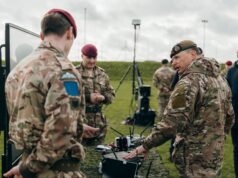
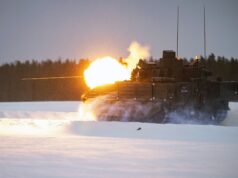
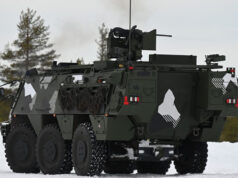

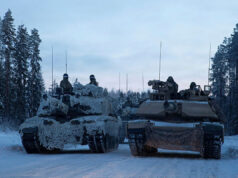

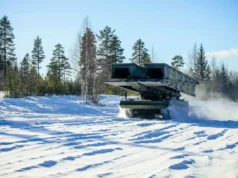


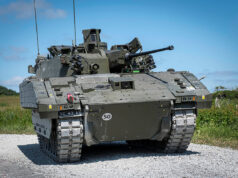

Too many defence reviews and the inevitable cuts that follow. How can you expect young men and women to commit to the services, when even medium employment can’t be guaranteed. It’s not rocket science….is it?
Exactly.
Good morning.
Not really surprising these figures, when the military are constantly cut. What’s the incentive?
Sadly gives HMG even more reason to cut as they can then claim the people are not there.
I believe I read somewhere the RN and RAF figures are not quite as dismal.
Young men are attracted by thought of going into action. But Afghanistan and Iraq have done a lot to dissuade many. Poor strategy. Initially poor equipment. Poor conditions (in the patrol bases). And no positive outcomes. Ten times as many die from heroin overdoses per year than have done from terrorism in over a decade. We should have invaded the country where they grow the most poppies………
The RN and RAF offer the uniform but with safer and ‘cleaner’ jobs with better conditions than you find in the field.
“The figures are historical”. Oh, well that’s all right then!
Not surprising given employment in the U.K. is at an all time high with the unemployment rate down to 4%, the lowest figure in decades. All despite Brexit ?
With too many jobs chasing too few people, the government needs to make a career in the military more attractive to potential recruits. The RN seems to understand this with the idea of forward basing ships and rotating crews periodically. But more ideas, along ditch a simple increase in remuneration, is required.
Not “ditch” => “with”
Bloody predictive text ?♂️
Not “ditch” -> but “with”
Predictive text… ?♂️
Unfortunately, unemployment figures can’t be considered reliable anymore. The official definition of being ‘in work’ is one hour of paid work per fortnight I believe. Makes it a pretty meaningless metric for anything other than shiny headlines.
That’s why it’s best to go to the independent Office for National Statistics where you’d find your definition is wrong.
https://blog.ons.gov.uk/2018/11/12/working-9-to-5-how-we-count-unemployment-and-what-the-numbers-show/
I think they are slowly waking up to the mess Crapita have made of recruitment- hopefully they will end the contract soon.
Totally agree. Anything that involves public sector and big business is a bad idea. Capita have only one job; to make money for its shareholders.
We have to advertise in a more enticing way, many will be far more attracted by showing the public the fantastic world leading kit they could be working on or operating, rather than the emotional care stuff we have seen of late. Give more insight into working with heavy armour, show what an engineering crew does in the aircraft hanger of a QE, advertise the state of the airy weapons systems. Many Are attracted by toys! And of course remove the privatisation of the recruitment process that slows down the response rate to applications to a snails pace.
Art not airy!
Airy seems OK considering the rainbow coloured unicorns the MOD seem obsessed with recruiting. Who needs working class “ruffians” when you can recruit slim wristed Julian from Brighton. “He is such a polite and gentle boy, he always does what he is told and wouldnt say Boo to a goose”.
Any figures for “Territorials”? The planning was from memory to have 30 000 Army reservists to compensate for the cuts in the Regular Army
Hasn’t happened.
Sad-more so because time spent in the Armed Forces had a much wider appeal in the”old days”. One would think that out of approximately 20 million(at a guess) suitable candidates in the UK 30 000 would not be too much to ask!! Computer games the culprit?
No. Lack of an existential threat. Generally being messed about. The TA was never much of anything even during the Cold War. It was very much a curate’s egg.
It’s 35,000 reservists they finally agreed on, but they ain’t anywere near that yet, but atleast the reservists are being trained to a higher standard now and can easily fit into th army structure.
Time-dare I say to bring back Conscription on a very limited scale? In South Africa in the 60’s the military operated a Ballot system with names “drawn from a hat”. Maybe also young people guilty of lesser crimes and suitable for rehabilitation could be offered time in the Army in lieu of punishment. Not suggesting a return to the Black and Tans but needs some imaginative thinking!
Hi Daniele-38 degrees C in Durban tomorrow-Cheers!!
Hi geoff.
Enjoy!
For February not bad here in England either.
I’m in Surrey so I will bring the Kebabs!
I believe your due for record February temps Daniele! Durban at 38 Deg in February is awful-high humidity and searing sun. Cheers(before the Editor deletes us for off subject!)
Exactly geoff. Don’t think George does much of that given the political rants that break out here, and to which I am guilty as anyone else.
Cheers mate.
And – playing devils advocate – did you see the episode of Yes Prime Minister where they discussed this. It was described as taking a bunch of disorganised unfit untrained and unmotivated yobs and turning them into organised, fit, trained and motivated yobs.
As always when he speaks, I think Sir Humphrey might have had a point…
Hahahahah(in lieu of Imojis)
🙂
Jealous ?
Times have changed. Joining the military isn’t fashionable. Was it ever though?
I think conscription is a no go. Who wants to waste a year of their life to do something they really don’t want to? A system of three months of basic military training so people can learn basic life and military skills but in no way would be made to go to war would be a more realistic form of conscription. And it’s only three months. Won’t happen though.
I’ve always wondered about the Army Reserve/Territorials. They do 19-27 days of training a year but could be asked to go to war. How can they acquire the requisite military skills with so little training?
Antidote-Hear what you say in your last sentence. Again looking at the South African example, the balloted Military service was initially 6 months and slowly escalated as the conflicts in Southern Africa escalated-9 months, a year, 2 years. In addition annual Camps were compulsory for some years after the National service was complete. All of this was based on 6 weeks(from memory) of basic training. Reservists generally were used to back up at the lower end by assisting the Police guarding Strategic points, on Border Patrol and in the Townships to deal with Civil unrest. In the UK Reservists with several years experience and the not insignificant numbers of those who had served in the fulltime Military could be used to bolster regulars in a conflict situation.
If a reservest is to deploy operationally they are mobilised and become fall time soldiers sometime before deploying. In my dads case i think it was 6 months. They then complete the predeplyment training with the regulars.
Also I agree with your point of conscription. Instead i think children should be “conscripted” in to the scouts or over similar youth groups to lern life skills.
Conscription and Reserves can work very well it all depends on the following factors:
For ANG/Reserves
1. How well was initial training done. If done right it sticks with you.
2. The amount of time spent on regular refresher training. One weekend a month was the stated goal of the US ANG
3. The amount of time spent on annual exercises. 2 weeks a year was the stated goal for deades.
Did it work? In Iraq and Afghanistan the Guard made up more than quarter of the deployed troops at various points in time. While preforming missions with same efficiency as just about any of the non-special troops.
As for conscription? Every Army in WWI and II was a conscription Army. Would any one question their professionalism by wars end? The only Army that entered either war as a all volunteer professional force was the British Army in 1914. That didn’t last long because it quite simply could not cope with the needs of the war and was being ground to paste and the British Army knew better than to even try fighting a war without conscription in WWII.
A more modern example? Israeli IDF – conscript, Austrian Bundesheer – conscript, Swiss Shweizer Armee – conscript the list goes on.
As for people wanting to be conscripted? We don’t ask people whether they want to go to school, we tell them to. There is little moral difference in the between the two. A 1-2 year term where your required to choose between serving in the Military or in the case of conscientious objection dig ditches and repair roads is not overly burdensome.
Interesting. I would question, “There is little moral difference in the between the two” though maybe.
Taking Russia as an example, many who have done conscription say it’s a waste of time, ie they end up doing a lot of nothing much and for kopecks and say it’s badly organised. A real waste of time. Not only that but loads dodge the draft.
Have you served in either regulars or reserves? I haven’t.
Regular or Reserves? Both though it was a while ago.
My reasons for not seeing a difference between requiring compulsory education, taxes for social services that everyone in the end benefits from such as roads, police and social security payments and required compulsory service. Is that if their is a set of distinct human rights then the corollary must exist that their exists a set of human obligations. After all one should never expect a free lunch.
But surely those taxes are people’s way of paying to be protected by the armed services, ie they don’t want to serve themselves and we are better served by them doing the job they do, which allows the funding of the military through their taxes.
I wasn’t actually questioning it from that point of view though. Rather, I don’t expect someone to die going to school, but that same someone may die from doing conscription. Although I doubt conscripts would be put in harms way unless there was a full out major war; then we would perhaps all be conscripted anyway.
Calculate the likelihood of someone dying in training and that is the basic level of risk you are asking. In other words not much more than any industrial profession.
A conscript is only put at risk if the the Nation votes to engage in a military that the cadre of Active forces cannot handle. This would mean activating the Reserves which under this type of system are built up by conscription classes mustering out of their time. An example here is Israel there are extremely high political and economic costs to ordering that type of mobilization. So the risk to the conscription forces except in all out war is minimal. Other examples would include Singapore another proficient and well equipped Army and Greece which also has a heavy reliance on conscription.
As for taxes paying for defense? How many people actually pay for what they will receive over their lifetime? Conscription is a way to make it to where no matter what, whether rich or poor everyone has paid a price for society. Add to this what comparison money to blood and sweat?
Conscription wouldn’t be equal for all though. There would be ways of getting out of it, especially for those with the right conenctions. So the price wouldn’t be paid by everyone.
I really don’t feel that people should be forced to perform conscription. However, come all out war, I feel they should be called up if necessary.
Our society has, for better or worse, moved on from the days of conscription. This is partly due to there having been enough volunteers in the past who actually wanted to serve, but times have changed. This leaves something of a dilemma. What to do? For me, conscription is a non starter, so better to find other ways to entice people to join up voluntarily.
Universal conscription to gain the franchise would be the closest means to attaining a even start. As for people attempting to use their connections to escape service? Make the law unambiguous and the choice simple. Serve in the Military or if a conscientious objector hard labor. No medical deferments there are plenty jobs to do in the Army not all of them technically require all of your limbs.
I just simply fail to see a difference between a war and a “peace” where the Army and Marine Corps are constantly deployed in shitholes around the world where they take casualties. A 100% professional force creates a gap between military and civilian that makes committing the Army to easy. Where as a conscript force means everyone’s child is at risk. Therefore makes the government tread carefully and less likely order a ground campaign
We are constantly at war. However, we are not being invaded by enemy soldiers right now on our shores, so the general public probably doesn’t consider us at war in the sense they would feel a need to do conscription or voluntarily join up.
All our wars take place abroad. Yes, there is terrorism, cyberwarfare and counterintelligence happenig all the time, but I doubt they register in people’s minds as being war.
I was a Territorial from the mid 80 to mid 90s. It wasn’t unusual to do 7- to 90 days a year so more training than you might think. The core of regular attenders would build up good skills though I suspect narrower ones than a regular (so in an infantry battalion’s signals platoon the standard of signalling would be good but some of the basic infantry skills less so)
I think there are around 25,000 Army Reserves – fully trained currently. When you put all the details together, the military might need up to another 20,000 personnel, regular and reserves plus a higher level of trainee’s at any given time. The 2020 ‘s are going to be so crucial to the UK armed forces, when it comes to personnel numbers and the new equipment.
From what I hear Army Reserve numbers are a question of civil service smoke and mirrors …..
If it had to mobilise tomorrow, nowhere near 25, 000 could be called upon.
25,000 ‘names’ don’t equate to trained, equipped and ready to deploy personel.
It’s only through good rates of pay and attractive carrier paths that these numbers will eventually turn around.
From what i have seen, the figures are around 25,000 fully – trade trained, but of course they are looking for around 30,000. But ‘yes’ I think those are the correct numbers, up from some 19,000.
Pay Cuts 10y running.
Pension Cut X2 in 10 years to the lowest in over 40y
Progression slowed under NEM 2020.
Prospects very bleak Ref: AFCAS for the last 9y
Over worked, Under Paid, Completely Unappreciated,
Undermanned by 6000 SP.
Morale is in the toilet Ref: DCMH and out flow at the highest in years.
Most Junior Staff feel lied to and demoralised after being given the above shit sandwich.